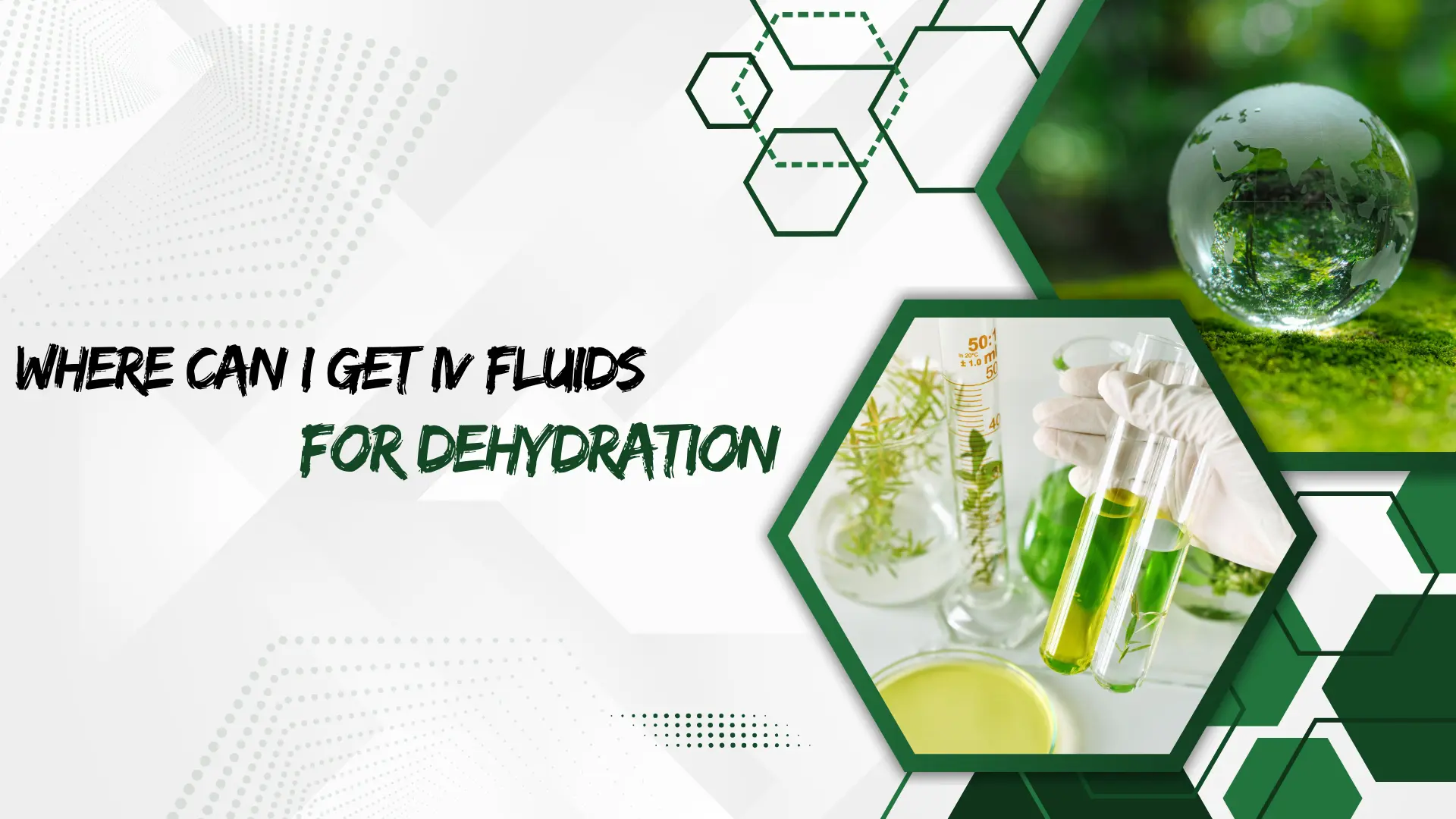Where can I Get IV Fluids for Dehydration

Dehydration occurs when the body loses more fluids than it takes in, leading to an imbalance that affects normal bodily functions. While mild dehydration can often be managed with increased water intake, more severe cases may require intravenous (IV) fluids to quickly restore hydration and electrolyte balance. IV fluids deliver essential fluids and nutrients directly into the bloodstream, ensuring faster absorption and recovery.
If you or a loved one is experiencing dehydration, knowing where to get IV fluids can make a significant difference. This article explores the various places where you can receive IV fluids, when you might need them, and what to consider before choosing a treatment option.
Understanding Dehydration and Its Severity
What Causes Dehydration?
Dehydration can result from a variety of factors, including:
- Excessive sweating: Intense exercise, high temperatures, or prolonged physical activity can lead to rapid fluid loss.
- Illnesses: Conditions such as fever, vomiting, and diarrhea can cause the body to lose fluids faster than they are replenished.
- Inadequate fluid intake: Not drinking enough water due to illness, fatigue, or a busy schedule can contribute to dehydration.
- Diuretic medications: Certain medications, such as those for high blood pressure, increase urine output and may lead to dehydration.
Recognizing the Signs of Dehydration
The severity of dehydration can range from mild to life-threatening. Some common symptoms include:
Mild Dehydration:
- Thirst
- Dry mouth and lips
- Decreased urine output (dark yellow urine)
Moderate to Severe Dehydration:
- Dizziness or lightheadedness
- Rapid heartbeat
- Sunken eyes
- Confusion or irritability
- Fainting or extreme weakness
If dehydration reaches a severe stage, IV fluids may be required to restore hydration levels quickly.
Settings Offering IV Fluid Therapy
1. Hospitals and Emergency Rooms
For severe cases of dehydration, hospitals and emergency rooms provide the highest level of care. Emergency medical teams can assess your condition, run necessary tests, and administer IV fluids under close supervision.
When to go to the hospital for IV fluids:
- If you have persistent vomiting and cannot keep fluids down
- If dehydration is accompanied by confusion, seizures, or fainting
- If there are signs of severe electrolyte imbalance
Hospitals also provide advanced treatments for dehydration caused by underlying health conditions, such as kidney failure or severe infections.
2. Urgent Care Centers
Urgent care centers are a convenient option for individuals experiencing moderate dehydration. These facilities are staffed with medical professionals who can quickly assess dehydration levels and administer IV fluids.
Advantages of choosing urgent care centers:
- Shorter wait times compared to hospitals
- More affordable than emergency rooms
- Suitable for non-life-threatening cases of dehydration
Urgent care is an excellent option for those who feel weak or dizzy but are still able to walk and function without immediate emergency intervention.
3. Specialized IV Therapy Clinics
In recent years, IV therapy clinics have gained popularity for hydration treatments. These clinics offer IV drips designed for rehydration, vitamin infusions, and overall wellness.
Benefits of IV therapy clinics:
- Quick treatment sessions (usually 30-60 minutes)
- Customizable IV formulas (including electrolytes, vitamins, and antioxidants)
- Comfortable, spa-like environments
However, it’s essential to ensure that these clinics have licensed medical staff, as IV therapy should always be administered by trained professionals to avoid complications.
4. At-Home IV Therapy Services
Mobile IV therapy services allow patients to receive IV fluids in the comfort of their own homes. A registered nurse or paramedic will visit your location, assess your condition, and administer the IV fluids.
Why choose at-home IV therapy?
- Convenience for individuals who are too weak to travel
- Personalized care in a comfortable environment
- No exposure to hospital germs or long wait times
This option is particularly useful for individuals recovering from dehydration due to food poisoning, the flu, or intense physical exertion.
Considerations Before Receiving IV Fluids
1. Medical Evaluation is Essential
Before opting for IV therapy, it’s crucial to consult a healthcare provider. While IV fluids are highly effective, they are not always necessary for mild dehydration. A medical professional can evaluate your symptoms and determine whether IV therapy is appropriate.
2. Ensure Treatment is Administered by Qualified Professionals
Receiving IV fluids from an untrained individual can lead to complications such as:
- Infection at the injection site
- Air embolism (air bubbles in the bloodstream)
- Incorrect fluid or electrolyte balance
Always verify the credentials of the provider before undergoing IV therapy.
3. Understand the Risks and Benefits
While IV fluids are generally safe, potential risks include:
- Minor discomfort from the needle insertion
- Allergic reactions to additives in the IV solution
- Fluid overload (excess fluids in the body, which can be dangerous for individuals with kidney or heart conditions)
Discuss any underlying medical conditions with your healthcare provider before receiving IV fluids.
Preventing Dehydration
While IV therapy can effectively treat dehydration, prevention is always the best approach. Here are some simple strategies to stay hydrated:
1. Drink Enough Water Daily
The amount of water needed varies by individual, but general recommendations include:
- Men: About 3.7 liters (125 ounces) per day
- Women: About 2.7 liters (91 ounces) per day
- Athletes or individuals in hot climates: More water intake is necessary to compensate for fluid loss.
2. Consume Hydrating Foods and Beverages
In addition to water, consuming fruits and vegetables with high water content can help maintain hydration. Examples include:
- Watermelon
- Cucumbers
- Oranges
- Celery
Electrolyte-rich drinks such as coconut water or sports drinks can also be helpful, especially after excessive sweating or illness.
3. Recognize Early Signs of Dehydration
By paying attention to your body’s signals, such as thirst or dark-colored urine, you can take action before dehydration becomes severe.
Conclusion
IV fluids can be a life-saving treatment for dehydration, especially in cases where oral rehydration is insufficient. Hospitals, urgent care centers, IV therapy clinics, and at-home services all offer IV hydration, depending on the severity of dehydration and personal preferences.
Before choosing IV therapy, ensure you receive proper medical evaluation, select a reputable provider, and understand the risks and benefits of the treatment. Most importantly, prioritize hydration in your daily routine to prevent dehydration from occurring in the first place.
By taking these steps, you can stay healthy, hydrated, and avoid the complications of severe dehydration.





